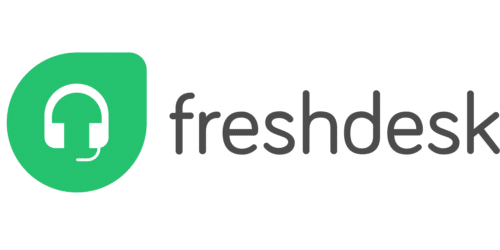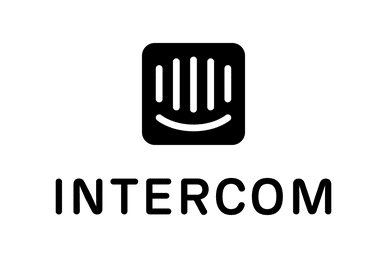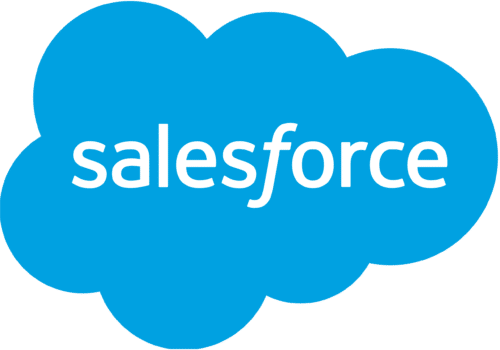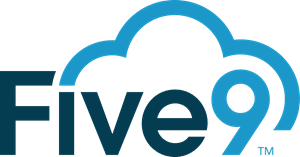Customer Service Software
Customer service software helps businesses run their customer service department easily and efficiently while keeping track of all relevant conversations, contacts, and other customer data. This software is designed to help customer service reps manage customer inquiries and requests, while also allowing them to better engage with customers, answer questions quickly, and close more deals.
Learn more and explore some of the top customer service software solutions in this guide.
In this definition...
What Is Customer Service Software?
Customer service software helps businesses manage customer interactions. Agents can use these tools to track customer inquiries and complaints, automate customer service tasks, keep track of customer information, route customer requests to the appropriate department or individual, and measure customer satisfaction levels.
With these services in place, companies can handle all incoming customer contacts, from web form submissions to phone calls, more efficiently than before. Customer service software may also help with basic customer support tasks, such as email replies, social media management, chat conversations, phone calls, filing tickets, and online chats.
Who Uses Customer Service Software?
Most businesses that offer customer support use some form of customer service software. Enterprise-level organizations might use customer service software to keep all team members on the same page when answering customers’ questions. Smaller companies might also employ this software so they can spend less time on customer relations as they grow their business.
Businesses use customer service software to keep track of customer interactions and support requests. Companies can use this software to ensure they are providing the best possible service to their customers.
In addition, some programs offer reports that show trends in a company’s customer base and performance metrics to identify any problem areas or opportunities for improvement. For instance, if certain types of complaints seem more prevalent than others, such as billing-related problems, then businesses can recognize and take steps to remedy those issues.
Types of Customer Service Software
There are many different types of customer service software available. While they all have a similar customer support purpose, each kind of software has its specific function and set of features:
Live chat
Live chat software enables real-time communication between agents and customers via text or video to answer questions, solve problems, and offer advice. It allows companies to address inquiries immediately so the customer doesn’t need to wait for an email response or hold on the phone for an agent.
Help desk/ticketing system
A help desk or ticketing system handles customer requests as efficiently as possible. Agents can create tickets and prioritize them according to what needs attention first, giving each request the appropriate level of urgency.
Customer feedback management system
A feedback management system collects information regarding what customers think about products and services via survey questionnaires.
Knowledge base
A knowledge base is a collection of articles, videos, and other guides that agents can use when responding to customer queries. The idea behind this database is that if customers are repeatedly asking the same questions, agents can point them to relevant knowledge base articles that have already been written on the subject.
Phone support
One of the most common ways to interact with customers is through phone support. Companies often assign one representative to manage incoming calls. Phone support software offers features like call recordings, intelligent internal routing, access to full customer history, and automatic ticket creation.
Messaging apps
Companies use messaging apps such as Slack, WhatsApp, Facebook Messenger, and Apple iMessage to converse with their customers. Mobile app developers also create custom messaging apps to allow users to ask questions from within the app itself.
Chatbots
Chatbots are computer programs designed to simulate conversation with humans via text or voice chats. They’re usually integrated into websites and mobile applications for specific tasks like answering basic questions about the business or assisting in purchase decisions.
Key Features of Customer Service Software
While different types of customer service software provide distinct features and functionalities, all good customer service software offers the following features:
Auto-attendant
If a call comes in for your company, an automated voice prompts the caller to enter their phone number or to press “0” for more options. They then hear a list of choices, such as “press ‘1’ for billing inquiries.” The caller presses the appropriate number key on their phone’s keypad and is connected with that department or person.
Reporting/analytics
Customer service software provides reports so managers can see which departments need more attention or improvements in customer satisfaction. Companies can also use reports to see where customers spend most of their time while using their service; this helps companies know where they should focus marketing efforts.
Most customer service software also offers analytics to view team performance over time. These reports include everything from daily calls to average handle time per call.
Employee tracking
Some customer service systems offer employee tracking, including records of who made each call and when. With this data, managers can analyze workloads and determine if they need to hire new staff or train existing employees better.
Case management
Case management allows reps to track customers’ issues and resolve them via the appropriate channel, whether that’s email, chat, phone, or social media. This feature gives representatives instant access to tickets submitted by other agents, allowing them to take over a case at any time without having to ask another agent for help. It also simplifies workflow by sending notifications when something needs urgent attention and assigning cases based on priority.
Mobile access
Employees often work outside the office, and mobile apps allow employees to check messages, respond to chats, and even answer phone calls from wherever they are. Mobile chat tools also allow companies to provide better support during off-hours because chat conversations happen in real-time rather than waiting until business hours resume.
Top Customer Service Software Solutions
Customer service software solutions help customer service professionals make the most of their time. These tools can be used for email, chat and social media channels, and traditional phone call centers. These are some of the top customer service software solutions on the market today:
Zendesk

Zendesk is customer service software that helps businesses manage customer interactions. It consolidates all customer information in one place so companies can provide better, more efficient customer service. Zendesk also offers ticketing, a knowledge base, and community forums to help businesses resolve customer issues.
Features
- Help desk automation
- Live chat
- Agent collaboration
- Self-service portal (knowledge base, help center, customer portal, and community forums)
- Insights and analytics (customer analytics, performance measurement, prescriptive dashboard, and customization)
- 1,200+ pre-built apps
Pros
- Feature-rich
- Ideal for a diverse customer base
- Mobile support
- Comprehensive reporting and analytics
Cons
- Potentially high price
- Challenges with data upload and export
- Steep learning curve
COST
Zendesk suites
- Suite Team: $49 per agent per month
- Suite Growth: $79 per agent per month
- Suite Professional: $99 per agent per month
- Suite Enterprise: $150 per agent per month
- Custom suite options for $215+ per agent per month
Zendesk for sales
- Zendesk Sell Team: $19 per agent per month
- Zendesk Sell Growth: $49 per agent per month
- Zendesk Sell Professional: $99 per agent per month
- Zendesk Sell Enterprise: Starting at $150 per agent per month
Zendesk support
- Support Team: $19 per agent per month
- Support Professional: $49 per agent per month
- Support Enterprise: $99 per agent per month
Freshdesk

Freshdesk is a SaaS-based customer support solution that makes it easy for companies to manage customer support operations. With Freshdesk, users can automate and monitor their workflows to spend more time providing high-quality customer service.
Features
- Multiple service level agreement policies
- Reporting and analytics
- Dashboards
- Ticketing
- Email-to-ticket conversion
- Knowledge base
- Self-service portal
- Help center
Pros
- Easy to use
- Offers free plan
- Excellent reporting features
- Advanced workflow automation
- Integrations with other Freshworks products
Cons
- Limited free plan features
- Analytics feature still in beta mode
Cost
Support Desk
- Free: Up to 10 agents
- Growth: $15/agent/month, billed annually or $18/agent/month, billed monthly
- Pro: $49/agent/month, billed annually or $59/agent/month, billed monthly
- Enterprise: $79/agent/month, billed annually or $95/agent/month, billed monthly
Omnichannel
- Growth Omnichannel: $29/agent/month, billed annually or $35/agent/month, billed monthly
- Pro Omnichannel: $59/agent/month, billed annually or $71/agent/month, billed monthly
- Enterprise Omnichannel: $99/agent/month, billed annually or $119/agent/month, billed monthly
Add-ons
- $75 for 1,000 bot sessions/month
LiveChat

LiveChat is online chat software that helps customer service reps to engage with customers in real time. It supports businesses as they solve issues and respond quickly to customer queries, giving them a competitive edge over competitors who cannot offer the same level of service due to distance or time zones.
LiveChat lets customers start conversations by clicking a live chat button on the company’s website or mobile app. The API integration can also embed the software into third-party websites and apps. It’s used by businesses of all sizes, from small to enterprise companies.
Features
- Chat tools
- Customer engagement
- Chat widget customization
- Reports and analytics
- Security
- Customizable branding
- Multichannel communication
- Third-party integrations
- Ticket and case management
Pros
- Quick issues resolution
- Multi-platform support for Android, iOS, websites, etc.
- Ease of use
- Functionality for message previews, chatbot, and analytics
- Extensive integrations
Cons
- More expensive than other competitors
- Free trial limited to 14 days
Cost
- Starter: $16 per month per agent, billed annually or $19 per month per agent, billed monthly
- Team: $33 per month per agent, billed annually or $39 per month per agent, billed monthly
- Business: $50 per month per agent, billed annually or $59 per month per agent, billed monthly
- Enterprise: Contact sales
NetFortris

NetFortris is cloud-based VoIP customer service software that helps businesses manage customer interactions. Companies of all sizes use NetFortris to improve customer satisfaction and efficiency. The solution includes call routing, automatic call distribution, and call recording.
Features
- Personalized call routing
- Mobile device integration
- Hosted PBX
- Multi-level Interactive Voice Response (IVR)
- Call reports
- Call management features: answering rules, call recording, call park, call screening, and message alerts
- Video and audio conferencing
- Heads Up Display (HUD) UC applications
Pros
- Intuitive drag-and-drop call handling
- Automated voicemail transcription
- Extensive deep call routing and call center features
- Real-time call log visibility
Cons
- Features might be overwhelming for small businesses that need basic PBX software
Cost
Pricing details aren’t available on the NetFortris website. Potential customers can request an online demo and quote from their contact page.
Intercom

Intercom is a customer service software platform that helps businesses manage customer communication across multiple channels, including email, live chat, and social media. Intercom also offers tools to help enterprises automate customer support tasks, such as ticketing and knowledge management.
Features
- CAN-SPAM compliance
- Autoresponders
- Automated responses
- Automated routing
- Pop-up chat/chatbots
Pros
- A/B testing
- Robust knowledge base
- Easy integrations with user websites
- Excellent data tracking and cross-channel communication
Cons
- Expensive for smaller businesses
- Poor customer support reviews
- Difficult to integrate with CRM
- Companies pay for each add-on
- Complicated pricing plans
Cost
- Starter: $74 per month, billed annually
- Product Tours: $199 per month
- Surveys: $49 per month
- WhatsApp add-on: $9 per month per seat
- Advanced plans: Quotes available on request
Salesforce

Salesforce is customer relationship management (CRM) software that helps businesses keep track of their customers and sales. It includes features like contact management, task management, and opportunity management. Companies can use Salesforce to track their sales pipeline and better understand their customers.
Salesforce also offers mobile apps for iOS and Android devices so users can stay on top of customer data while on the go. With Salesforce, businesses can provide personalized service across all channels—inbound calls, email messages, chat conversations, social media posts—and various languages.
Features
- Account and contact management
- Sales performance management
- Customization
- Quote management
- Lead management
- Workflow and approvals
- Reports and dashboards
Pros
- Powerful CRM platform
- A variety of available consulting and technical partners for Salesforce
- Customizable dashboards
Cons
- The tool is expensive
- Complex configuration and setup
- Steep learning curve
Cost for Service Cloud
- Essentials: $25 per user per month, billed annually
- Professional: $75 per user per month, billed annually
- Enterprise: $150 per user per month, billed annually
- Unlimited: $300 per user per month, billed annually
Five9

Five9 is cloud-based contact center software that helps businesses manage customer interactions with features like omnichannel routing, workforce management, and analytics. Five9 is used by businesses of all sizes, from small to enterprise companies. Its comprehensive suite of integrated solutions simplifies customer service management with strong collaboration features across departments.
Features
- Agent call scripting
- Call center data importing and statistics
- Call conferencing software
- Call quality monitoring
- Speech recognition
- Online contact database
- Activity dashboard
- Agent interface
- Alerts/notifications
- Appointment management
- Automatic call and lead distribution and outbound dialer
- Blended call center
- PBX
Pros
- Integrates with ServiceNow, Salesforce, Zendesk, Freshdesk, Microsoft Dynamics, Oracle, and NetSuite
- Simple reporting process
- 100+ pre-made templates
- User-friendly interface
- Agent collision detection
- Audit logging
Cons
- Lacking channel and workflow automation features
- Reports of poor UX quality
- Expensive
Cost
- Core: $149 per month
- Premium: $169 per month
- Optimum: $199 per month
- Ultimate: $229 per month
LiveAgent

LiveAgent is customer service software that provides a platform for businesses to create and manage ticketing, chat, and email support. LiveAgent also offers a knowledge base and reporting features. Companies of all sizes use LiveAgent to improve customer satisfaction and reduce support costs.
Features
- Integrations with Messenger, Viber, Slack, and Shopify
- Reporting and data analytics
- Gamification
- SLA management
- Automation
- Agent ranking
- Internal chats, calls, private notes, and internal tickets
Pros
- Real-time typing view
- Centralized shared inbox that receives tickets from all channels
- Simplified enterprise social platform management
Cons
- Steep learning curve
- Issues with the mobile app
Cost
- Free
- Ticket: $15 per agent per month
- Ticket+Chat: $29 per agent per month
- All-inclusive: $49 per agent per month
Zoho Desk

Zoho Desk is a cloud-based customer service solution that allows users to assign, track, and set up alerts on help desk tickets. They can also provide support for social media inquiries and enable multichannel customer service, including email, phone, and chat messaging.
Features
- Ticket management
- Zia (artificial intelligence)
- Self-service
- Agent productivity
- Automation
- Extensibility
- Insights and impact
- Customization
- Security
Pros
- Customer journey dashboard
- Extensive features at an affordable price
- Streamlined client ticket management across phone, email, and web form communication
- Integrations available for knowledge base, user community, and AI
Cons
- Difficult to customize
- Weak user interface features
Cost
- Free: Up to three agents
- Standard: $14 per agent per month, billed annually
- Professional: $23 per agent per month, billed annually
- Enterprise: $40 per agent per month, billed annually
Groove HQ

Groove HQ is customer service software designed for small businesses and startups that need an easy-to-use platform to help them grow. Groove HQ helps companies manage their customer support and includes capabilities such as a knowledge base and reporting tools.
Features
- Workflow, rules, and automation
- SLA management
- Reporting data retention
- Internal notes
- Email templates
- Customer detail and history insights
- Inbox permissions
- Collision detection
Pros
- Ease of setup and use
- Fully customizable and scalable
- Affordable
Cons
- Slow operations
- Cost is per conversion
Cost
There are four pricing plans based on the number of conversions per month.
- Basic: $50 per month, billed annually
- Pro: $250 per month, billed annually
- Advanced: $650 per month, billed annually
- Custom: Request for quote
What Are the Benefits of Using Customer Service Software?
Perhaps the most obvious benefit of using customer service software is that it helps agents track customers’ contact information and communication history. This can be helpful when trying to resolve customer issues or following up on sales leads.
Other benefits include:
- Increased workload and contact organization
- Reduced costs
- Increased productivity
- Faster resolution times
- Easier scaling
- Improved reporting and better insights
- Less training required for new agents
- More support channels and potential 24/7 support available
- Centralized data management
Choosing the Best Customer Service Software
The right customer service software solution depends on enterprise-specific needs and uses cases. Companies should research providers to understand their product offerings, functionality, and pricing before selecting a vendor. They should also consider their staffing needs because different types of customer service software require different skill sets to run effectively.
CRM, help desk, live chat, and VoIP solutions offer organizations a unified communications platform for customer interactions, but there are plenty of simpler solutions for more limited needs. Companies should assess customer interaction goals and objectives in order to identify what type of customer service software will work best.
Choosing the wrong customer service software could lead to costly turnover rates if employees struggle with software training or have difficulty logging in due to poor usability. As much as possible, read user reviews of different solutions to get a sense of what will fit your team’s specific needs.
Read next: Help Desk Software Buyer’s Guide

